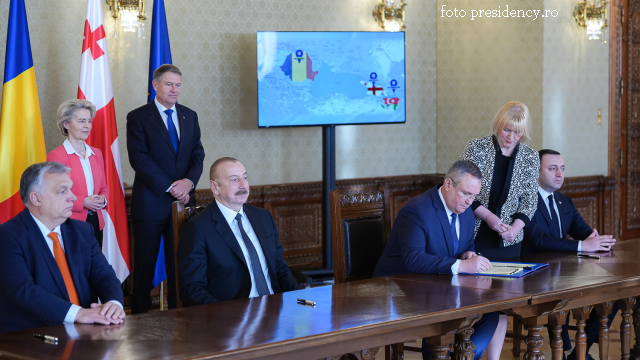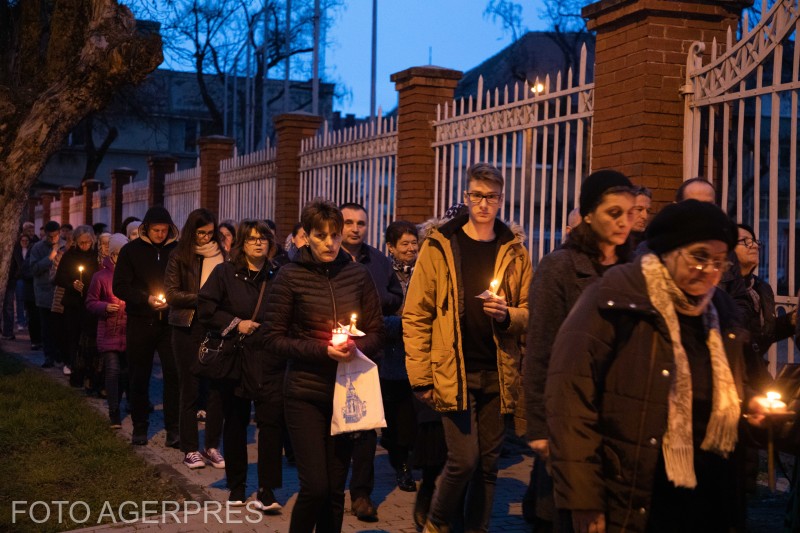Green energy deal
The governments of Azerbaijan, Georgia, Hungary and Romania have signed an agreement in the field of green energy.

Mihai Pelin, 19.12.2022, 14:00
An underwater cable transporting
green energy through the Black Sea to the EU will be built by Azerbaijan,
Georgia, Hungary and Romania. According to Romanian authorities, a feasibility
study is due to complete by next autumn. The 1,200-km power cable will take six
years to build. An agreement in this respect was signed in Bucharest, in the
presence of European Commission president, Ursula von der Leyen. The document
reflects the interests of the four states for consolidating national and
regional energy security and ensuring interconnectivity in the Black Sea region,
diversifying own supply sources, capitalizing on the Caspian Sea’s potential of
producing renewable energy and increasing the share of renewable energy at
national level, the Presidency reports. The agreement on creating a Strategic
Partnership in the field of developing and transporting energy is a crucial
and ambitious document that will seriously help strengthen energy security at
European level and will boost regional cooperation, Romania’s president, Klaus
Iohannis, said. Given the current security context caused by the military
aggression in Ukraine, we should enhance our cooperation and display more
solidarity in overcoming current challenges. This agreement provides a
framework for long-term cooperation between our countries in a number of essential
fields, such as producing, transporting and trading energy trading, also
helping develop new infrastructure projects, including an underwater power
cable in the Black Sea, and later projects targeting green hydrogen and energy
efficiency, Klaus Iohannis went on to say. In turn, the European Commission
president, Ursula von der Leyen highlighted the importance of this project.
The Black Sea electric cable is a
new transmission route full of opportunities. This project could bring Georgia,
a country with a European destiny, great benefits as well. It could transform
the country into an electricity hub and integrate it in the EU internal
electricity market. Finally, the Black Sea electric cable could also help bring
electricity to our neighbors in Moldova and the Western Balkans.
The president of Azerbaijan, Ilham
Aliyev, said his country would become a major provider of electricity for
Europe, while the Prime Minister of Georgia, Irakli Garibashvili also stated
his country is willing to cooperate to ensure European states can receive
supplies of green energy. In turn, Hungary’s Prime Minister, Viktor Orbán, said that the time when Europe imported cheap energy
and raw materials from Russia is now over, and that new sources of renewable
energy must be identified. Romania is committed to investing in energy
production and infrastructure, Romania’s Prime Minister, Nicolae Ciucă said in
turn. The agreement was signed in response to an urgent need to boost the share
of green energy and energy security, and Romania will play a key role as a
transit country, offering alternative routes to neighbors and EU partners, the
Romanian official further said.






























